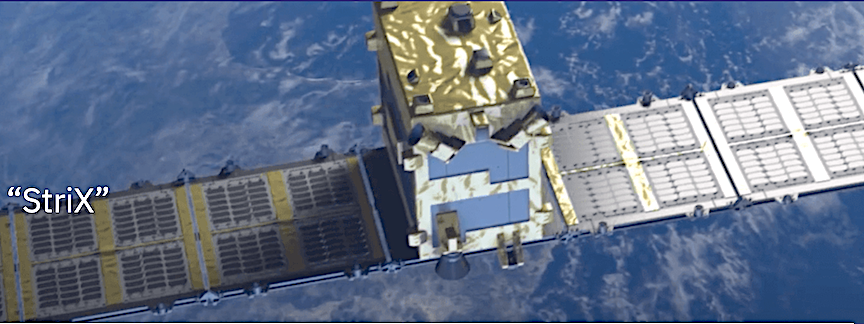
Synspective Inc., a SAR satellite data and analytics solution provider, has successfully acquired the image from its third SAR satellite, “StriX-1”.
“StriX-1” was launched by Rocket Lab’s Electron from New Zealand’s Mahia Peninsula launch site on September 16, 2022 (JST) and put into target orbit at an altitude of 561km in a sun-synchronous orbit (SSO). Since then, it has been operating effectively and has successfully observed several places around the world including Venice and its lagoon in Italy.
Dr. Motoyuki Arai, Founder/CEO of Synspective Inc. commented, First of all, I would like to express my sincere gratitude to the Syspective members and everyone who contributed to the successful acquisition of data by our “StriX-1.” Following the demonstration satellites “StriX-α” and “StriX-β”, our commercial prototype “StriX-1” successfully entered into orbit and acquired data. We are making great strides toward business expansion as well as the construction of a satellite constellation.
In 2023, we concluded many business partnerships both in Japan and overseas and realized again the growing need for SAR satellite data in various fields. With the recent success of image acquisition, we will continue to provide high-frequency and high-quality SAR satellite data in line with the needs of society and customers, as well as enhance our solutions using satellite data in the areas of infrastructure development and disaster mitigation.“
Toshihiro Obata, Board Director/General Manager of Satellite System Development Dept. Synspective Inc. said, It has been about three months since the successful launch and orbit insertion on September 16. I would like to express my gratitude to all the Synspective development, manufacturing, and operation members, as well as our external partners for their hard work that led to the stable operation of StriX-1 and its image acquisition.
Following the successful acquisition of images by the commercial prototype, whose mission is to expand our business, subsequent satellites are required to stably supply even higher quality data, and we need to focus on building systems and processes aimed at producing a large number of satellites. We will continue to work together with in-house members and cooperating companies to make steady progress.“